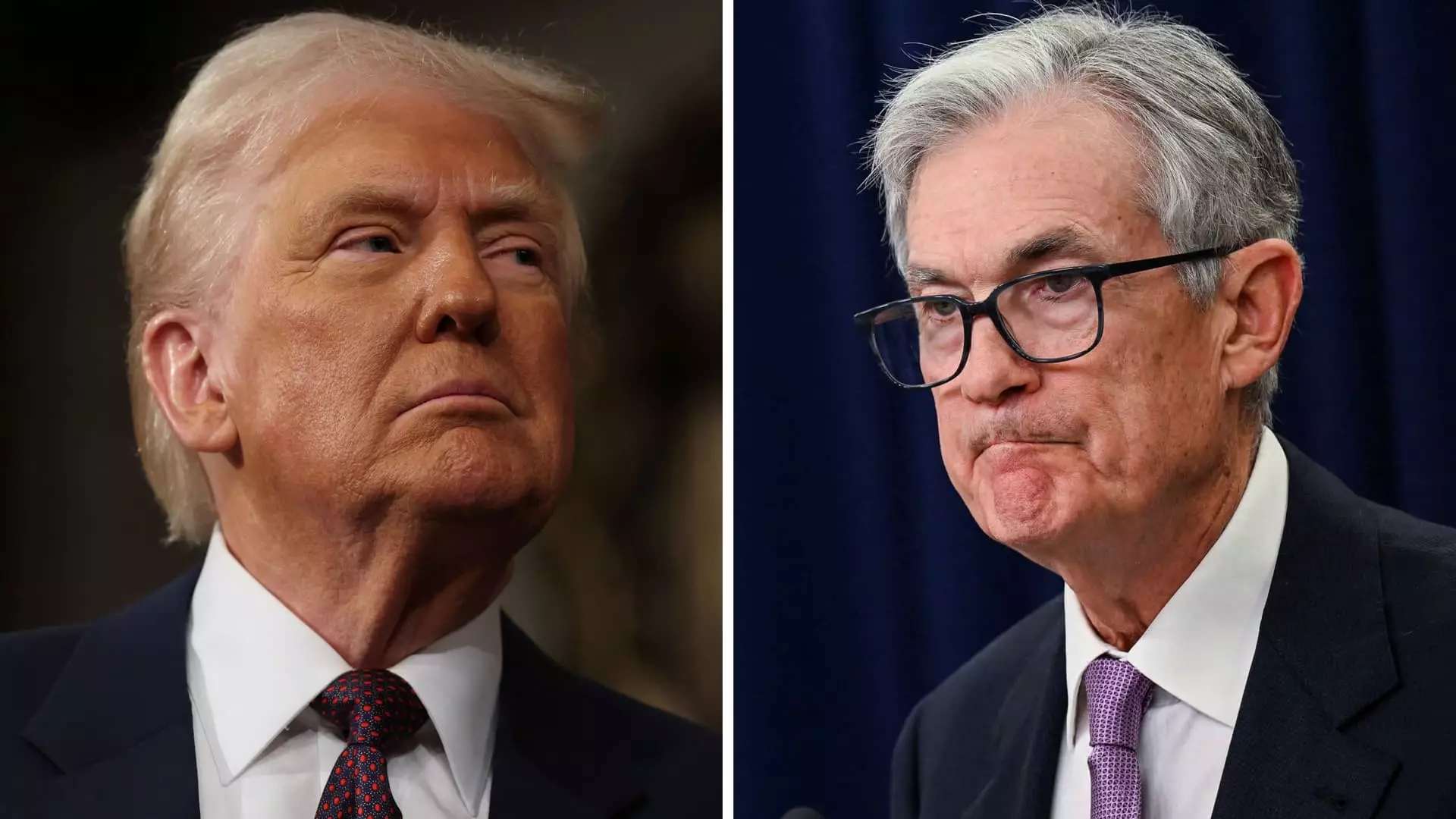In a dramatic display of discontent that seems to have escalated to dangerous dimensions, President Donald Trump has turned his ire towards Federal Reserve Chair Jerome Powell, criticizing the monetary policy leader with increasing ferocity. At a recent press event, Trump questioned Powell’s competency, asserting that if the Fed Chair had a grasp on economic policy, interest rates should already be on the decline. Statements like these not only reflect Trump’s lack of understanding of the complexities involved in monetary policy but also highlight a troubling tendency to undermine institutional independence for personal and political gain.
Trump’s consistent calls for lower interest rates signal an ongoing desire to stimulate an economy that he believes can only thrive with the support of the Federal Reserve’s monetary tools. However, the broader implications of such an approach could be precarious. When leaders pressure a financial institution designed to operate independently, it raises mounting concerns about the erosion of checks and balances critical to maintaining economic stability. The Federal Reserve’s ability to make decisions based on economic indicators rather than political whims is foundational for a sound economy—one that prioritizes long-term health over short-term political gain.
Exploiting the System: The Danger of a Firing Threat
The White House’s whispers about potentially firing Powell add a layer of trepidation to the current economic landscape. White House economic adviser Kevin Hassett hinted that the administration is exploring whether there are any legal avenues to remove Powell from his position, a notion that some would argue crosses a dangerous ethical line. Powell has made it clear that he is determined to serve out his term, which runs until 2026. Yet, this apparent commitment to his role should not dismiss the ominous undertones surrounding Trump’s threats. The very suggestion that a sitting president might have the power to dismiss the chair of the Fed could severely undermine market confidence, creating ripples that could destabilize the U.S. economy.
The ramifications of such a decision are profound. Senator Elizabeth Warren has vocally criticized the notion, warning that any attempt to remove Powell could trigger market chaos—an outcome that may have reverberations far beyond Wall Street, affecting Main Street communities as well. Her concerns underscore how integral the Fed’s independence is to the function of a stable economic environment. When political motivations interfere with monetary policy, the ramifications could be dire, affecting employment, inflation, and ultimately the financial well-being of American families.
The Clash of Economic Ideals
Tensions escalated further when Powell publicly critiqued Trump’s tariff policies, suggesting they could reverse the Fed’s goals of achieving sustainable growth and high employment rates. This public confrontation illustrates a crucial separation between economic messaging and political strategy. While Trump has crafted a narrative suggesting an economy fueled by deregulation and lower rates fosters growth, Powell’s cautious stance advocates for a balanced approach that recognizes the potential perils of unrestrained monetary easing. It’s this divergence in philosophical approaches that speaks to the heart of the matter.
The Federal Reserve’s job is inherently complex—balancing various economic indicators while ensuring that myriad power players do not dictate policy based on their own agendas. When Powell warns that tariffs may hinder the Fed’s ability to meet its dual mandate of stable prices and maximum employment, it should serve as a wake-up call for the White House. Instead of sidestepping critiques or attempting to redefine the leadership of the Fed, it would be wiser for the administration to heed the expert counsel of monetary policymakers.
This ongoing saga raises broader questions about governance, accountability, and the role an empowered Fed plays within the landscape of American capitalism. The calls for Powell’s ouster not only reflect a tangible discontent with current fiscal policies but also a fundamental misunderstanding of economic infrastructure—a misunderstanding that places partisan objectives above sound economic governance.
In this precarious political environment, the Founding Fathers’ vision of a system of checks and balances rings truer than ever. As the threats against Federal Reserve independence mount, it becomes increasingly essential for all political actors to prioritize the country’s economic health over transient political grievances.


Leave a Reply